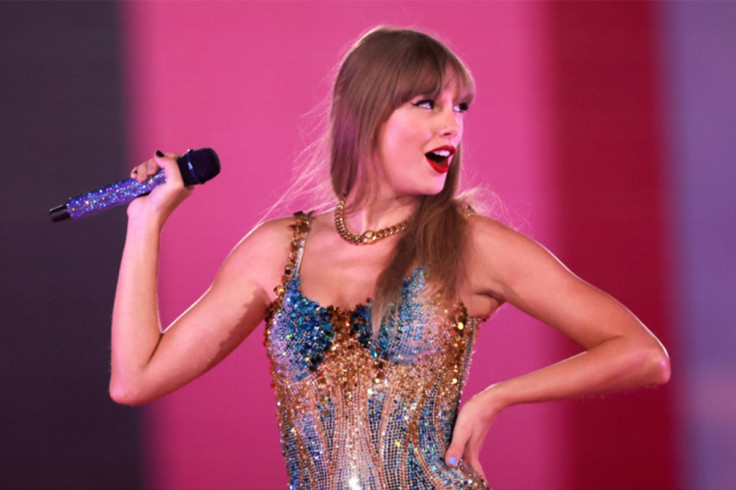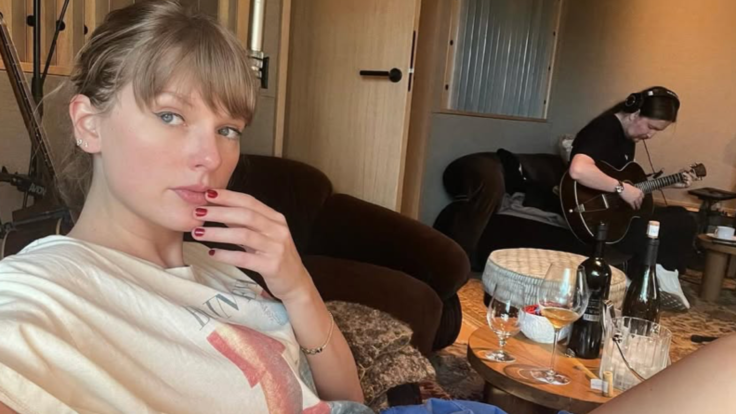'Manipulative Marketing Rollout'? Fans Blast Taylor Swift for 'Too Many' Album Variants in Latest 'Cash-Grab Move'
Multiple retailer exclusives and unique vinyl poems boosted sales

Taylor Swift's deluxe frenzy has left some fans furious, and the debate over whether 'variants' are artistry or avarice has never sounded louder.
Taylor Swift's 12th studio album, The Life of a Showgirl, arrived amid a flurry of collectible editions: multiple CDs, coloured and glitter vinyl pressings, cassettes, and retailer exclusives sold through her official webstore and high-street partners.
The strategy helped the album post historic sales, but it also provoked fresh accusations that the rollout is a calculated attempt to encourage superfans to buy several copies, an assertive marketing model critics call a 'cash-grab'.
How the Rollout Worked
Swift's own store lists a wide range of formats, from a Portofino Orange glitter vinyl to boxed sets and deluxe CD bundles, many explicitly limited in quantity and sometimes limited per customer. Several retailer exclusives (Target among them) added further, slightly different CD editions and unique vinyl pressings.
Swift has framed some of the collectables as part of the album's storytelling. She told interviewers there are unique poems included inside different vinyl gatefolds, 'little pieces that, when assembled, form part of the album's prologue', and said she enjoys the sense of play these physical extras create for fans.
On Apple Music's Zane Lowe show, she also responded to mixed critical reactions by saying she 'welcomes the chaos' and that listeners are entitled to feel how they want about her work.
Fans Say it Feels Like a Cash-Grab
Not all fans absorbed the extras with delight. Social posts and comment threads lit up within hours of the release, with some listeners accusing the rollout of pressuring supporters into buying more than one copy to collect all artwork and inserts.
'If you buy four versions, you're buying four records', one fan comment, widely reposted in coverage, summarised the complaint. Others cited the cost burden on younger or less affluent fans who feel unable to take part in the collectathon.

Environmental concerns also surfaced. Artists and industry figures have criticised the broader practice of multiple pressings as wasteful; Billie Eilish, for instance, has previously described excessive variant production as 'so wasteful', arguing the industry should seek sustainability rather than multiply physical editions to inflate sales. That criticism has been echoed by some Swift fans and commentators in the current debate.
Commercial Reality: Why the Industry Does It
The backlash sits alongside a simple commercial fact: more variants equal more purchase opportunities and more sales. Data firms and chart analysts have documented how physical variants have become a mainstream tactic in the streaming era, with an average of several versions issued for many top releases.
Labels and artists argue variants meet demand from collectors and help sustain a market for physical formats, especially vinyl.
In Showgirl's case, the tactic coincided with extraordinary numbers: industry data reported by Luminate and covered by the Associated Press shows the album sold roughly 2.7 million traditional copies in the US on day one and reached record vinyl figures (about 1.2 million copies in its opening week).
Those totals played a major role in initial reports that Swift's new release had already eclipsed long-standing first-week benchmarks. Critics say variants materially affect chart outcomes; supporters say they are a legitimate way to monetise physical artistry.
This is not strictly a Taylor-only story. Analysts and artists point out the variant arms race is an industry-level trend, adopted by labels seeking to bolster physical sales in a streaming-dominated market.
Whether labels should self-regulate or charts should adjust how they count multiple editions are now live questions for the music business. For fans, the choice remains personal — buy the artwork, buy the music once, or buy nothing at all.
Swift's rollout has therefore achieved both outcomes she and her team likely intended: a major commercial hit and a cultural conversation. Whether that conversation reads as creative generosity or manipulative marketing depends largely on the listener's vantage point.
© Copyright IBTimes 2025. All rights reserved.





















